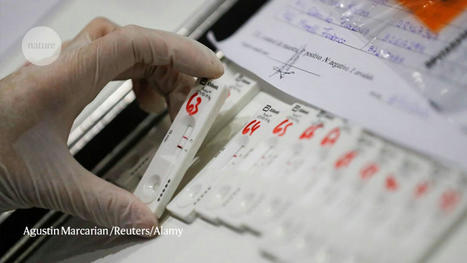Those with SARS-CoV-2 are often advised to isolate for only a few days. But evidence is mounting that some people can continue to pass on the virus for much longer. When the US Centers for Disease Control and Prevention (CDC) halved its recommended isolation time for people with COVID-19 to five days back in December, it said that the change was motivated by science. Specifically, the CDC said that most SARS-CoV-2 transmission occurs early in the course of the illness, in the one to two days before the onset of symptoms and for two to three days after. Many scientists disputed that decision then and they continue to do so. Such dissent is bolstered by a series of studies confirming that many people with COVID-19 remain infectious well into the second week after they first experience symptoms. Reductions in the length of the recommended isolation period — now common around the world — are driven by politics, they say, rather than any reassuring new data. “The facts of how long people are infectious for have not really changed,” says Amy Barczak, an infectious-disease specialist at Massachusetts General Hospital in Boston. “There is not data to support five days or anything shorter than ten days [of isolation].” Barczak’s own research, published on the medRxiv preprint server, suggests that one-quarter of people who have caught the Omicron variant of SARS-CoV-2 could still be infectious after eight days.
Published in Nature (July 26, 2022):
Read the full article at: www.nature.com
Via Juan Lama, Dr. Stefan Gruenwald



 Your new post is loading...
Your new post is loading...







